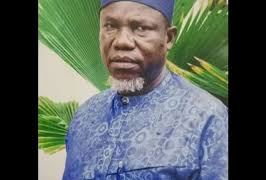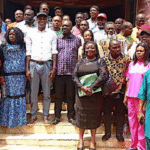In a sane democracy, politics is a platform for public service, a space where leadership meets responsibility, and where the needs of the people dictate the direction of governance. But in Nigeria, politics has mutated into a dirty hustle, arguably the most lucrative hustle on the African continent.
So, is politics a service or a hustle in Nigeria? Judging by the actions of most of our politicians, the answer is glaring: politics is now a full-time hustle. One not built on compassion, competence, or civic responsibility, but on personal gain, greed, and gangsterism.
Without a doubt, politics in Nigeria has become a shortcut to wealth. In fact, in today’s Nigeria, political office is viewed less as an opportunity to serve and more as a golden ticket to obscene wealth, privilege, and unchecked power. From councilors to senators, from governors to ministers, the story rarely changes: after elections, the voters are forgotten, and the looting spree begins.
It is not unusual to see newly elected politicians, previously struggling like everyday citizens, suddenly emerge with bulletproof SUVs, foreign mansions, first-class flights, and children attending elite schools abroad. While the masses groan under the weight of inflation, insecurity, and unemployment, their so-called leaders live in luxury funded by public coffers.
The message this sends is clear: politics is no longer about service, it is a hustle, and a very profitable one.
Without resort to denigrating Nigeria’s political elite, it is not out of place to opine that hustlers are unarguably in power pushing the people into the state of misery. Take a trip across Nigeria and observe the daily struggles of ordinary people. Potholed roads, dead-on-arrival hospitals, abandoned schools, epileptic electricity, and skyrocketing food prices are the norm. Yet, these basic failures do not seem to affect our political elite.
They govern without conscience. Even when they manage to execute projects, they are often cosmetic and over-inflated. A borehole becomes a political milestone. Shared wrappers and motorbikes become “empowerment.” Food handouts during elections are marketed as “dividends of democracy.” How did we get here?
In fact, politics in Nigeria has become the most lucrative investment in the country. One reason politics has become a hustle is because it yields outrageous returns. With a few hundred million naira, often acquired through shady deals or political godfathers, any aspiring politician can buy their way into power. Once in office, the returns are massive, and the risk of accountability is practically non-existent.
Corrupt politicians are rarely punished in Nigeria. If exposed, they simply switch parties and are welcomed like returning heroes. Some even run for higher offices while standing trial. It is a vicious cycle that rewards impunity and punishes integrity.
In this broken system, who wants to serve when there is a buffet of loot waiting at the end of the political tunnel?
Expectedly, the unarguable systemic political curse has been detrimental to the development of Nigeria, particularly as the fallout has been mediocrity and misrule.
Unfortunately, service-minded professionals, intellectuals, and patriots are systematically shut out of the process. The cost of running for office is too high, and the rules of engagement too dirty. If you do not have a political godfather, or you are not willing to bribe, rig, or lie your way to power, you are seen as unserious.
This has led to a dangerous trend: Nigerian politics is now dominated by hustlers, not leaders. By hustlers, we mean ex-military apologists, failed businessmen, social media comedians-turned-lawmakers, and even ex-convicts. Their leadership often leaves citizens worse off, yet they return every four years with the same empty promises and recycled slogans.
At this point, it is pertinent to ask: “What does genuine political service truly looks like?” To answer the foregoing question, it is germane to opine that politics, in its purest form, is about service. It is about stewardship. It is about leadership built on empathy and a commitment to the greater good. A public servant should be someone who sees power as a responsibility, not a jackpot or hustle.
Imagine a Nigeria where schools are functional, hospitals offer quality care, roads are safe, and every child has access to quality education. A country where politicians are accessible, accountable, and answerable. That is what politics should strive for. That is what political service look like. But as long as the hustlers hold the reins, this vision will remain a distant dream.
Again, it is expedient to ask, “Can the tide of this jinx that is synonymous with hustle, and not service be turned?” Yes, but not without sacrifice and sincerity from both the leaders and the led. It can be turned through the reformation of Political parties, and entrenchment of internal democracy in such reformed parties. Candidates must be selected based on competence, character, and proven records, not through bribes and connections. The era of godfatherism must end. We cannot pretend to be oblivious of the inanities that have being playing out in Rivers State since the last few months.
The electorate must awaken. Selling votes for rice, N500, or second-hand wrappers only perpetuates this hustle culture. Nigerians must learn to demand substance, not sentiment. They must vote based on policies, not party affiliations, ethnicity, or religion.
In fact, institutions must be strengthened. The judiciary must be independent. Anti-corruption agencies must be fearless and well-funded. Civil society must be watchful and vocal. The media must hold power accountable, not trade headlines for brown envelopes.
And politicians, on their own, must change their mindset. Public office is not a place to “go and chop.” It is a trust, a responsibility to deliver for the people who voted you in.
The reason for the foregoing view cannot be farfetched as Nigeria is unarguably a nation at breaking point. We cannot pretend about it. This is as the signs are already here. Youths are disillusioned. The middle class is disappearing. Hunger is everywhere. Insecurity is growing. Yet, the political class carries on as though all is well, celebrating birthdays in Dubai and commissioning substandard projects with fanfare.
Let it be known: the patience of the Nigerian people is not eternal. When a people conclude that their leaders are merely hustlers in agbada and babanriga, a reckoning is not far off.
So we return to the question: Is politics a service or a hustle? Nigerian politicians must answer this, not with words, but with actions. If they see politics as a hustle, then let them not be surprised when the system eventually turns on them. But if they begin to embrace service, genuine service, then maybe, just maybe, Nigeria can begin to heal. The choice is theirs. And the clock is ticking.



